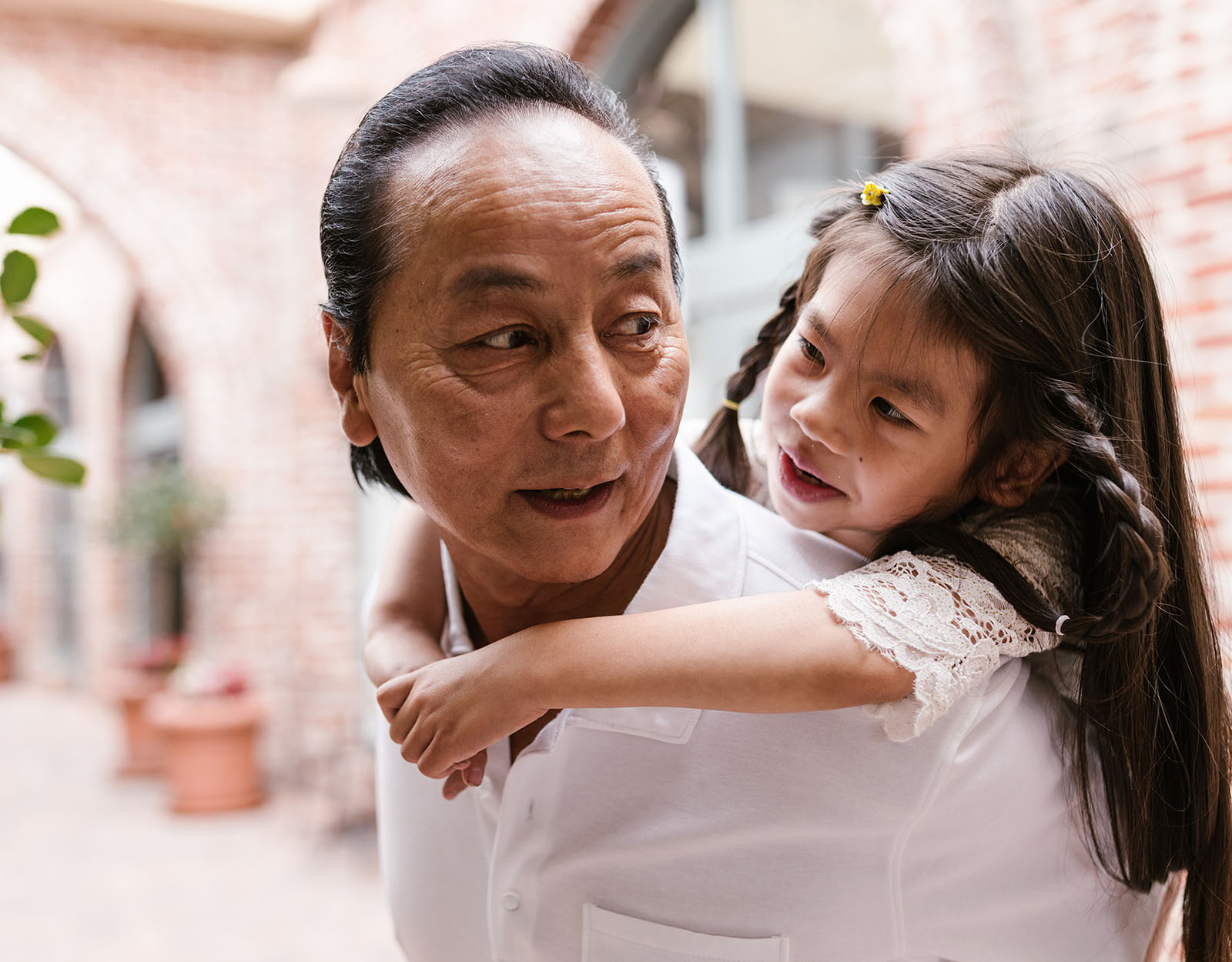Why Some Filipino Families Prefer Obedient Over Competent
Filipino families often confuse being obedient with being competent, often straining relationships with members who contest their opinions.
We always want our kids to grow up well-rounded, exposed, and smart. But when they’re exposed to something that we didn’t, it may leave us at odds with them. Especially in the Philippines where expressing one’s opinion can be seen as an act of disrespect among the more traditional families, it then teaches the child that parents don’t love a competent child. They love an obedient one.
But of course, we parents know that premise doesn’t make sense. We love our kids but why do we express otherwise, especially when our kids show that they know more than we do?

First, we look at the interaction between two Filipino core values.
To further understand the root of a Filipino family’s confusion between being obedient and being competent, we need to investigate the interaction between the two Filipino core values: namely, Hiya (shame) and Pakikisama (companionship). Unlike its English counterpart, Hiya adds a layer of compassion for another person’s dignity in the Philippine context (Bulatao, 1964; Lasquety-Reyes, 2016). This then manifests as a Filipino family’s mindfulness and expressions regarding some behaviors that may rock the proverbial boat. We see this when someone wishes to share their individual achievements, Filipinos often express their distaste for it with the expression, grumbling, “Walang hiya naman itong taong ‘to.” Or in English, “This person has no shame.”
But there appears to be an overlap of the Pakikisama value, which when translated, means “companionship.” However, there are other words in the Tagalog vocabulary that are synonymous and therefore, add depth to the term such as pakikitungo (being civil with someone), pakikilahok (to join someone), pakikiisa (to become “one” with). From here, we can say that there is a call to become a synchronized, single entity that works together for a united purpose.
Unfortunately, emotion can sometimes override that purpose
However, Hiya has both an emotional and virtuous component, Lasquety argues, in which sometimes, we know that the former can override all logical sense. We are Filipinos; we are bearers of a warrior’s bloodline which makes us more passionate in our pursuits. While it has its pros in goal-setting and achieving in the corporate and entrepreneurial world, its cons are more often highlighted through various microaggressions in the form of well-meaning yet hurtful remarks in the home. Comments such as “Katulad ka ng kapatid mo!” or “Galing naman nito!” unfortunately can become double-edged, depending on the delivery. Especially at a young age when kids are trying to establish their identity, referring to Erik Erikson’s Play Stage of Initiative vs. Guilt, associating them with their siblings may contribute to sibling rivalry as they are trying to stand out and find the reason why their parents love them.
This then leads to their “disobedient” behaviors for their attempts to find their craft do not always end neatly. One such example could be a child’s attempt to cook a meal for the family independently, only to leave a demoralizing mess of oily and greasy pots and pans with brightly colored sauce stains on the kitchen counter and floor. As a parent, what we see is an extra chore on our to-do list: if we don’t clean it up, our homes become susceptible to cockroaches, pests, and various infections. Because of this, our first reaction is to scold and discipline the child. Amidst that passion of hiya, we overlook the virtue that our child is trying to practice: expressing independence and a desire to contribute to the family.
Both reasonings are valid, however. But the expression of negative emotion must also include a desire to understand the motives. For example, we can express our shock by saying, “What happened?” but consciously directing the conversation by saying, “What did you want to do?” This encourages us to be more problem-solving-focused in our discipline, conditioning us also when it yields a tantrum-less outcome.

There’s nothing wrong with obedience, however.
Obedience still has its merits, being one of the many virtues that allow people to survive. We obey our elders because we respect the experience they’ve gone through. As they’ve lived many years on this earth, it is only proper that we offer that level of respect. We can still respect and love our elders while having an open and diplomatic conversation with them.
But what prevents us from fully processing the situation?
We first need to see that a situation has three parts: motive (why), actions (how), and aftermath (what). And usually, all we need is to know why they did it to calm down. Unfortunately, that becomes difficult, especially after yelling at them. When our childhood is filled with yelling, it’s no surprise that we may do it too out of instinct because that’s what we grew up seeing. We were kids once; we learned by watching our own parents.
But that trigger is also what prevents us from committing to that crucial window wherein competence remains the goal. Our rage takes time to simmer down, only to be replaced by guilt. We feel guilty because although we are supposed to be authority figures, we eventually and consciously realize that’s not how we want to maintain order at home. We always say we don’t want to repeat the things our parents do but, we do so anyway. Amidst our guilt, we need to remind ourselves that not all of them had the mindfulness and the resources of a parenting library unlike today (Jocson, Alampay, and Lansford, 2012; Alampay, 2013).
Whereas, we do.
It shouldn’t be a choice between being “obedient” or “competent.”
Because of our strained relationship filled with the struggles of finding appropriate discipline, some kids would eventually choose to be obedient after having their spirits broken many times. But there are some kids who relish being competent instead since it attracts more opportunities to be independent as they grow up, settling for being labeled as “the black sheep.” The most ironic part is that although the methods are different, the motive is still the same. To make a family grow requires something novel to offer. Even if it means no longer being the family’s definition of “obedient and competent.”
References
Alampay, L. P. (2013). Parenting in the Philippines. In Parenting across cultures: Childrearing, motherhood and fatherhood in non-Western cultures (pp. 105-121). Dordrecht: Springer Netherlands.
Alampay, L. P., Lachman, J. M., Landoy, B. V., Madrid, B. J., Ward, C. L., Hutchings, J., Alinea, M.C. & Gardner, F. (2018). Preventing child maltreatment in low‐and middle-income countries: Parenting for Lifelong Health in the Philippines. Developmental science and sustainable development goals for children and youth, 277-293.
Bartolome, M. T., Mamat, N., & Masnan, A. H. (2017). Parental Involvement in the Philippines: A Review of Literatures. International Journal of Early Childhood Education and Care, 6, 41-50.
Bulatao, J. C. (1964). Hiya. Philippine Studies, 12(3), 424-438.
Jocson, R. M., Alampay, L. P., & Lansford, J. E. (2012). Predicting Filipino mothers’ and fathers’ reported use of corporal punishment from education, authoritarian attitudes, and endorsement of corporal punishment. International Journal of Behavioral Development, 36(2), 137-145.
Lasquety-Reyes, J. (2016). In defense of hiya as a Filipino virtue. Asian philosophy, 26(1), 66-78.
Mcleod, S., PhD, & Mcleod, S., PhD. (2023). Erik Erikson’s Stages of Psychosocial Development. Simply Psychology. https://www.simplypsychology.org/erik-erikson.html
Reyes, J. (2015). Loob and kapwa: An introduction to a Filipino virtue ethics. Asian philosophy, 25(2), 148-171.
Related articles:
How Utang na Loob Made Filipino Families Toxic
Filipino Values: How It Deeply Runs Families
Filipino Words and Phrases We Need to Teach Our Kids









